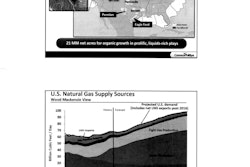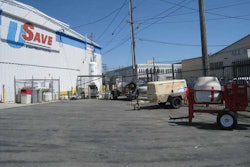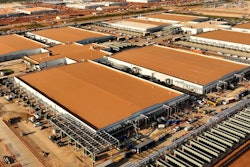
A hurricane trumps a “no liability” clause in a delay damages case.
By Brian Morrow
Construction projects are time sensitive by nature. Owners, developers, contractors, subcontractors and material suppliers commit to a project timeline so they can realize their anticipated profits within a defined schedule. When a project is delayed, one of the risks is escalating material costs.

In a recent Arizona case — Technology Construction, Inc. (TCI) v. City of Kingman, 229 Ariz. 564 (decided June 12, 2012) — the Arizona court of appeals awarded delay damages to TCI relating to the increased price of asphalt due to Hurricane Katrina, despite the lack of a materials escalation clause and a “no liability” clause in the city’s favor.
In July 2005, TCI contracted with city of Kingman for the construction of a railroad underpass for $5,226,722. Work on the project was scheduled for two phases. Phase 1 included a shoofly and relocation of a sewer line and water line, was scheduled to begin June 1, 2005, and was to be completed by June 30, 2005. Phase 2 included road work, was scheduled to begin July 18, 2005, and was to be completed by March 15, 2006. However, TCI’s work did not commence until October 2005 because the city did not present a contract for TCI to sign until July 7, 2005. Also, the city did not give TCI notices to proceed until October 14, 2005 (Phase 2) and November 3, 2005 (Phase 1). TCI did not cause the delays.
In late August 2005, Hurricane Katrina occurred during delays to the project start. As a result, the price of oil increased dramatically. This led to an increase in the cost of asphalt. At the conclusion of the project, TCI had installed 10,359 tons of asphalt. TCI’s initial bid price was $54.10 per ton, while the actual price was $85.40 per ton. TCI claimed damages of $324,933, or the total increase in cost from bid/contract execution to actual cost of installation.
In May 2006, TCI submitted a notice of claim requesting additional payment due to “the increased cost of asphalt materials arising out of . . . delays beyond the control of(TCI) and cost impact on oil-based products by Hurricane Katrina.” The notice of claim stated TCI would submit a change order for the increased cost of materials from October 2005 onward. Subsequently, TCI requested payment but Kingman did not pay.
TCI filed suit for breach of contract and violation of the Arizona prompt payment act. The trial court found the delays were caused by the city, including those due to unexpected relocation of utilities, re-engineering for the sanitary sewer and delays by the city in getting the contract executed and financing in place. The former city engineer testified there were a number of unforeseen conditions that had to be addressed throughout the project. These conditions were not the fault of TCI and TCI handled them in a responsible manner.

The appeals court reviewed the contract and found conflicting clauses. There was a “no liability” clause. The city argued this clause limited its liability to the contract amount. The court noted, however, the contract included other documents, including the 2004 Uniform Standard Specifications for Public Works Construction. The specifications contained clauses that allow for delay damages and changes in the event of owner-caused delays or changes. The appeals court found the “no liability” clause did not override the other contract provisions.
The city argued that TCI’s fixed price contract also prohibited an award of damages. However, the appeals court found the contract allowed for changes and the parties had executed at least three change orders. The court also found that TCI’s damages for increased material costs were foreseeable, and hence recoverable, stating that
“[p]rices of commodities such as construction materials change over time and in accordance with market forces under many influences, including weather. The fact that Hurricane Katrina drove up the price of asphalt materials subsequent to the signing of the contract does not mean that delay damages were unforeseeable.”
As a result, the appeals court affirmed the trial court’s judgment for TCI.
This case demonstrates an important contract principle. When possible, courts read conflicting contract provisions to give meaning to the entire contract and each individual clause. Here, the court found contract clauses providing for delay damages and changed conditions overrode the city’s “no liability” clause. As the trial court noted, the city could have drafted a force majeure clause and insulated itself from damages based upon an act of God, but did not do so. However, with slightly different facts the court could have ruled the other way. In general, contracting parties need to be aware of risk-shifting mechanisms within a contract, including delay and escalation clauses relating to the increased price of materials. In the absence of such contract provisions, the question of who bears the risk of loss can be uncertain.
Brian Morrow is a partner in Newmeyer & Dillion LLP, a law firm in California. He is a licensed California Civil Engineer, and specializes in the field of construction law, including road and heavy construction. Contact him at [email protected]











